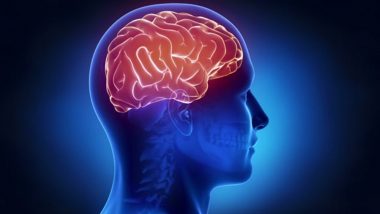Every year World Meningitis Day is observed on April 24. Meningitis is a type of infarction that causes inflammation in the brain and spinal cord protecting the membrane. There are many signs before meningitis, which we often overlook. When the fever hits the brain, it can even be fatal. Therefore, it is better to understand its symptoms for early diagnosis for better treatment. Meningitis is an inflammation of the meninges (the membrane covering the brain and spinal cord). Meningitis can be life-threatening because of the proximity of inflammation to the brain and spinal cord. The most common cause of meningitis is viral infections that are caused by bacteria and rarely, fungal infections. Some cases of meningitis are cured without treatment in a few weeks. Meningitis can occur when the fluid surrounding the meninges becomes infected. The highest incidence of meningitis occurs from birth to age 2.
Meningitis Causes
The most common causes of meningitis are viral and bacterial infections. Other reasons may include:
- Cancer,
- Chemical burns,
- Fungi,
- Drug allergy,
- Some viral and bacterial meningitis are contagious. They can be transmitted by coughing, sneezing, or close contact.
Meningitis Symptoms
Sudden fever: One of the symptoms of meningitis is sudden fever. The chills, feeling of shivering, and regular complaints of a cold. The temperature of the patient increases.
Terrible headache: Meningitis often leads to severe headaches, which become unbearable, this pain can also affect the patient's neck.
Double vision: The person who is affected by meningitis starts seeing all things blurred and double.
Abdominal pain, nausea, and vomiting: A person suffering from meningitis feels hungry and has persistent nausea, abdominal pain, and vomiting.
Light sensitivity: One sign of meningitis is the fear of bright light because the eyes of the person come in contact with strong light. Increases the likelihood of nausea and sharp headaches.
Skin rashes: It is possible to have skin rashes due to meningitis.
Meningitis Prevention- Vaccine
Yes, there is a vaccine for many types of bacterial meningitis. Meningococcal meningitis, which is caused by Neisseria meningitides, is a variant for which vaccines are available. While viral meningitis is more common, bacterial meningitis can be more dangerous if it is not diagnosed and treated early. For that reason, the two primary vaccines for meningitis are for bacterial causes. The first vaccine, the meningococcal conjugate vaccine, is a vaccine that targets the four most common types of bacterial serotypes. It lasts longer and provides more protection, especially if you maintain booster shots. The second vaccine, MenB, targets a specific strain and does not provide much protection. Side effects of the meningitis vaccine include soreness, redness, and irritation at the injection site. Some people may have grade fever for a day or two after injection. There may also be chills, headaches, joint pain, and fatigue.
How is meningitis treated?
Its treatment is determined by the type of meningitis. Bacterial meningitis requires immediate hospitalization. Early diagnosis and treatment will prevent brain damage and death. Bacterial meningitis is treated with intravenous antibiotics. There is no specific antibiotic for bacterial meningitis. It depends on the bacteria involved.
Fungal meningitis is treated with antifungal agents. Parasitic meningitis may either be involved in the treatment of symptoms only or may attempt to treat the infection directly. Depending on the cause, this type may be preferable without antibiotic treatment. If it worsens, however, the doctor tries to treat the infection. Viral meningitis can be cured on its own, but some causes of viral meningitis can be treated with intravenous antiviral drugs.
(The above story first appeared on LatestLY on Apr 24, 2021 08:08 AM IST. For more news and updates on politics, world, sports, entertainment and lifestyle, log on to our website latestly.com).













 Quickly
Quickly





















